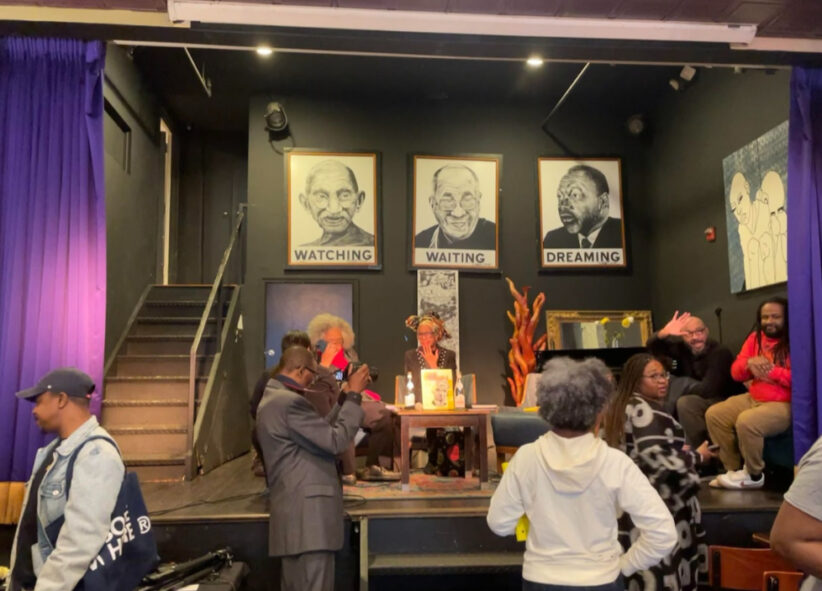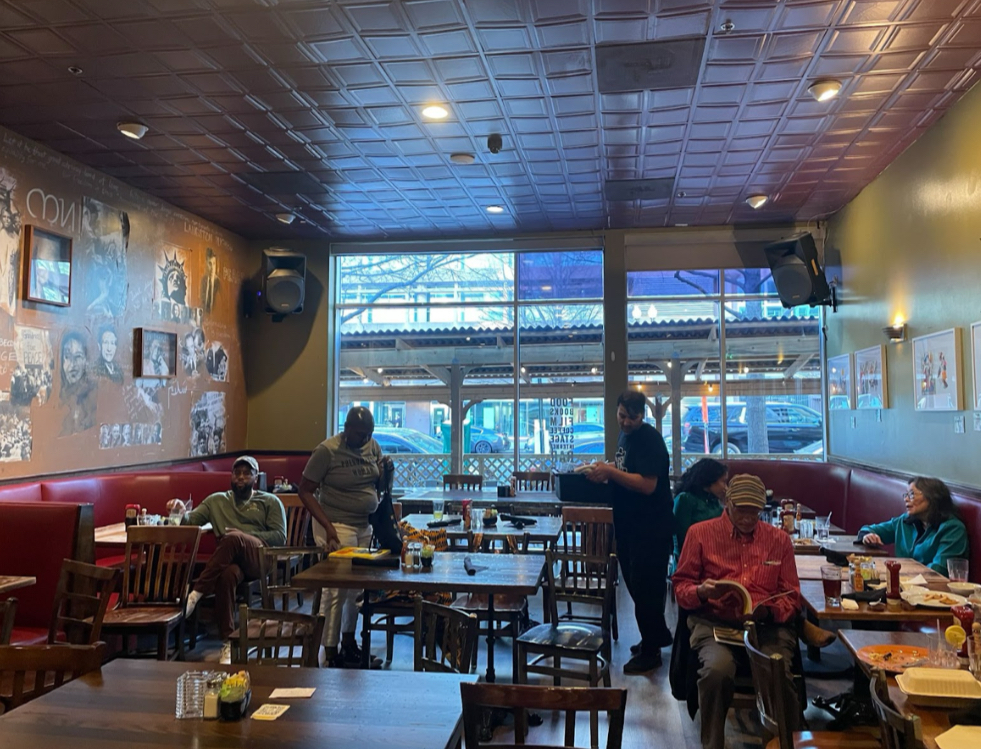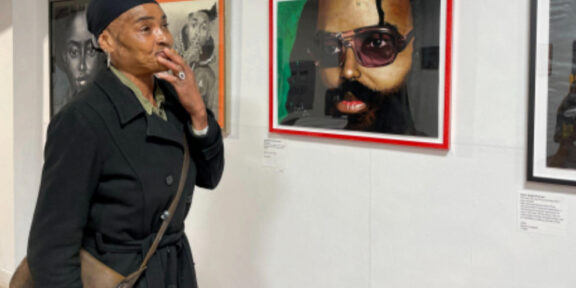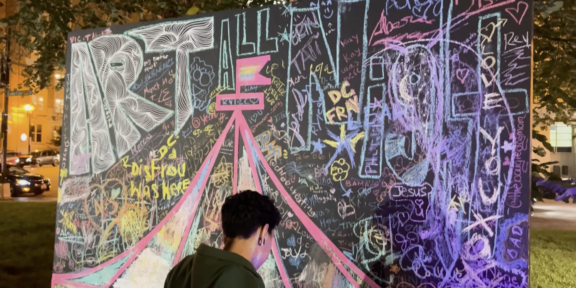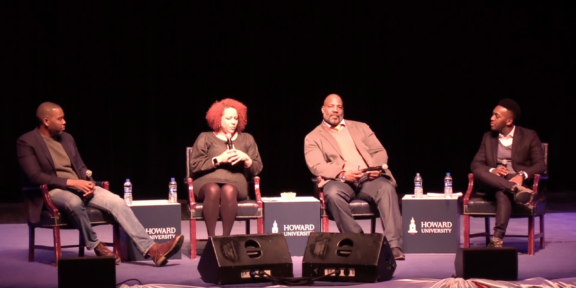By Kalahari Deprez
Busboys and Poets, located on 14th and V Street, hosted a book presentation on Afrofuturism with editors of a Smithsonian book from the National Museum of African American History and Culture.
Down to the right-hand side, through the brown double doors, sat a section of dining tables toward the back of the room near a grand window. Wooden chairs lined up in rows faced the stage toward the front.
One of the ideologies behind Afrofuturism is the use of science fiction and African history to create a more liberated and autonomous future for members of the African diaspora.
The book featured during the talk was “Afrofuturism: A History of Black Futures.” Copies were being sold toward the front of the stage. (Kalahari Deprez/Howard University News Service)
Kinshasa Holman Conwill, one of the two editors of Afrofuturism: A History of Black Futures, commented about the role of Black women in Afrofuturism.
“I think the story of the role of Black women in Afrofuturism is almost limitless. A lot was done in our book, but I think there’s more to be said,” she said.
Conwill continued, having said she’s interested in more exploration from other Black storytellers in Afrofuturism.
“I would commend people learning more about N.L. Jemisin, Ytasha Womack, Tiffany Barber, De Nichols and Alisha Wormsely,” Conwill said.
Lentz Sigue and his friend Miguel Byrd drove from New Jersey for a quick trip to D.C. to attend the event.
Referring to an earlier statement about the concept of time and space from one of the panelists, Joshua Meyers, Sigue replied with his biggest takeaway.
“[He] was talking about how when you begin to read into the African notions of time and space, a lot of this begins to disintegrate, and it forces us to look at time and space in a different way, completely alien to the West,” Sigue said.
Although the concept of Afrofuturism has existed for a few decades, it is still a relatively new and unexplored genre.
It aims to connect the entirety of space and time to create a more habitable future for Black people. Byrd further explains the collective existence of Black people in relation to Afrofuturism.
“Everything is above and below us, everything is before and after us, even ourselves. When you’re talking about Afrofuturism, there’s no clear distinction of past, present, or future of the African people, ” Byrd said.
Visitors chatted in the restaurant seating area while bussers cleaned the tables at Busboys and Poets on March 17th. (Kalahari Deprez/Howard University News Service)
Due to Afrofuturism still being an underdeveloped concept, there are still misconceptions about its purpose and what it means, according to Conwill.
“‘What are the internal contradictions of Black people looking at technology that hasn’t always favored them?’ “It’s just a fairly unexplored arena of Afrofuturism. Digging deeper into the role of women in Afrofuturism can be a very worthwhile thing to do.” Conwill said.
Sigue recounts his confusion with one of the panelists’ responses to an audience member’s question about Afrofuturism before the Middle Passage.
His companion, Miguel Byrd, adds, “If there is going to be an Afrofuturism, there has to be a complete rupture of Western framework. It can’t run parallel to how the Western world is seeing time.”
Lori Barrientos Sanchez, director of operations at Busboys and Poets, said they believed that the event contributed to the ongoing dialogue of Afrofuturism and its relevance today.
“Today, we have Afrofuturism. Tomorrow, and the day after and the year after, we’ll have Afrofuturism. As long as there are Black people, there will be Afrofuturism,” Sanchez said.
Sanchez’s colleague, Nathan Bernstein, the supervisor of the Takoma Busboys location, organized the book talk. Bernstein connected with Conwill and brought things together.
Sanchez mentioned that the Busboys and Poets in Takoma, curated by Carol Rhodes Dyson, showcases Afrofuturist pieces by local artists. They encourage people to visit, as they noted each piece is “unique, attention-grabbing, and thought-provoking.”
“Afrofuturism is the sometimes dark, sometimes joyous, and always thought-provoking intersection of speculative futures and science fiction fantasy through a Black lens,” they said about the significance of the genre within other contemporary art movements.
Its importance to them is through books, specifically with the author Octavia Butler. Having referenced them as “prolific” and a “visionary,” the restaurant considers her works to be a “Busboys Classic.”
“I want our programming to appeal to folks from all levels of knowledge with Black history/culture who want to learn and partake in imagining better futures for our communities, including our Black and brown neighbors,” Sanchez concluded.

